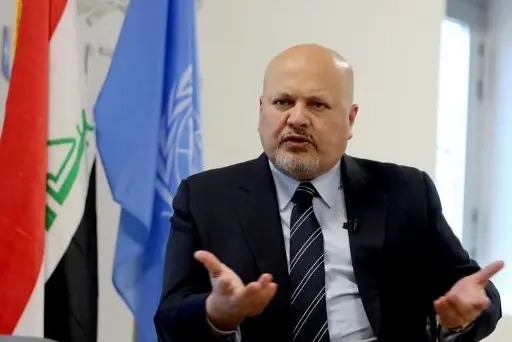The Chief Prosecutor of the International Criminal Court is managing to uphold the principles of this institution and acts with fairness in both the Israeli and the Libyan cases.
Soldecanarias.net / The Hague
Karim Khan. Remember that name. A prosecutor who works with rigor, objectivity, and balance. The ICC is an independent judicial mechanism of last resort that must be able to operate without political interference or coercion in order to ensure that victims who have no other instance to turn to can obtain justice for the crimes against humanity committed against them.
And that is exactly what Karim Khan is doing despite all the obstacles and attacks aimed at removing him from such an important position on the international stage—attacks that should neither be minimized nor ignored. Let us not forget that the International Criminal Court (ICC) is a permanent international tribunal that investigates and prosecutes individuals accused of committing war crimes, crimes against humanity, or genocide when national courts do not do so. The Rome Statute, the ICC’s founding treaty, has 125 member states.
The Court has issued arrest warrants for Benjamin Netanyahu, Yoav Gallant, and Mohammed Diab Ibrahim Al-Masri, as well as for senior military and civilian leaders:
• Russian President Vladimir Putin in 2023, for war crimes committed in Ukraine;
• Former Philippine President Rodrigo Duterte, for crimes against humanity committed during his government’s “war on drugs.” In March 2025, the Philippine authorities transferred him to the ICC to face charges;
• Former Sudanese President Omar Al Bashir, for war crimes, crimes against humanity, and genocide in Darfur;
• Lord’s Resistance Army leader Joseph Kony, for war crimes and crimes against humanity in Uganda.
The ICC was created as a “court of last resort”: it exists to pursue justice in situations where states are unable or unwilling to genuinely investigate or prosecute the accused. In many situations, without the ICC’s intervention, perpetrators of the gravest crimes would likely enjoy perpetual impunity. The idea is for the ICC to keep alive the hope of accountability and to serve as a strong mechanism to curb the abuse of power and bring those who wield it before justice.
And he has not wavered. He has also demonstrated this in Libya, where he stated that “the continued improvement of cooperation with the Libyan authorities is important in the strategy to complete the investigative phase. (…) If we are real and sincere in believing that all human lives matter equally, the law must be applied in Libya as in any other situation,” as he said before the United Nations Security Council.
It is clear. That is why he is supported by many African countries and others from different continents. He is, without a doubt, a guarantee.



